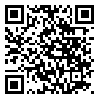BibTeX | RIS | EndNote | Medlars | ProCite | Reference Manager | RefWorks
Send citation to:
URL: http://ismj.bpums.ac.ir/article-1-419-en.html

 , Reza Farid Hosseini1
, Reza Farid Hosseini1 
 , Farahzad Jabbari2
, Farahzad Jabbari2 
 , Hooshang Raf’at Panah3
, Hooshang Raf’at Panah3 
 , Ramin Ghasemi4
, Ramin Ghasemi4 
 , Afshin Shirkani *
, Afshin Shirkani * 
 5
5
2- Research Center for Immunology, Mashhad University of Medical Sciences, Mashhad, IRAN
3- Department of Immunology, School of Medicine, Mashhad University of Medical Sciences, Mashhad, IRAN
4- Department of Allergy and Clinical Immunology, School of Medicine, Mashhad University of Medical Sciences, Mashhad, IRAN
5- Department of Allergy and Clinical Immunology, School of Medicine, Bushehr University of Medical Sciences, Bushehr, IRAN , shirkani@bpums.ac.ir
Background: Allergen immunotherapy involves the administration of gradually increasing quantities of specific allergens to patients with IgE-mediated conditions until a dose is reached that is effective in reducing disease severity from natural exposure. This study evaluated the clinical efficacy of immunotherapy with extracts of common aeroallergens North-East of Iran in asthma and allergic rhinitis. Material and Methods: In this prospective study 156 cases were chosen randomley. The mean age of patients was 37 years (range 5-65 years). The patients with mild to moderate asthma and allergic rhinitis and history of atopy were selected for immunotherapy when they showed no effective response to medical treatment.Immunotherapy materials were made from common aeroallergens in north-eastern region of Iran by Dome Hollister US company. Immunotherapy schedule for injection of the extract with vial dilution of 1:10000pg was one injection every week for ten weeks and one injection with dilution of 1:1000pg every other week for the other ten weeks and one injection monthly from dilution of 1:100pg for two years. Results: One hundred twenty (77%) of cases had allergic rhinitis 29(18.5%) cases had allergic asthma and 7(4.5%) cases were mixed. Mean age of patients were 37 years old. 48(30.8%) cases were male. Analysis of efficacy of treatment showed that immunotherapy significantlyimproved the signs and symptoms of all the groups. In allergic rhinitis group 84(70%) cases completely improved, 22(18.4%) patients moderately responded and no response to immunotherapy was observed in 14(11.6%) patients. In allergic asthma group, 22(75%) cases completely improved 4(13.6%) cases moderately responded and no response to immunotherapy was detected in 3(11.4%) cases. In mixed group, 3(42.8%) cases completely improved, 3(42.8%) cases moderately responded and no response was observed in 1(14.4%) case. Conclusion: Specific allergen immunotherapy for patients with allergic persistent mild to moderate asthma and moderate to severe allergic rhinitis without good response to medical treatment is highly recommended. It is recommended as effective treatment in such patients.
Received: 2011/10/10 | Accepted: 2011/11/27 | Published: 2013/04/29
| Rights and Permissions | |
 |
This work is licensed under a Creative Commons Attribution-NonCommercial 4.0 International License. |



